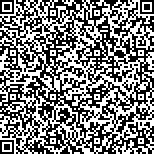| 引用本文: | 徐兴华,杨梦嫄,王中灿,范凯悦,孙城珂,王天宇,王建礼.小檗碱抑制缺氧诱导的人乳腺癌HCC1937细胞自噬[J].中国现代应用药学,2023,40(21):2972-2977. |
| XU Xinghua,YANG Mengyuan,WANG Zhongcan,FAN Kaiyue,SUN Chengke,WANG Tianyu,WANG Jianli.Berberine Inhibits Hypoxia-induced Autophagy in Human Breast Cancer HCC1937 Cells[J].Chin J Mod Appl Pharm(中国现代应用药学),2023,40(21):2972-2977. |
|
| |
|
|
| 本文已被:浏览 1146次 下载 712次 |

码上扫一扫! |
|
|
| 小檗碱抑制缺氧诱导的人乳腺癌HCC1937细胞自噬 |
|
徐兴华1, 杨梦嫄2, 王中灿3, 范凯悦2, 孙城珂2, 王天宇2, 王建礼1
|
|
1.济宁医学院基础医学院, 山东 济宁 272067;2.济宁医学院临床学院, 山东 济宁 272067;3.济宁医学院精神卫生学院, 山东 济宁 272067
|
|
| 摘要: |
| 目的 研究小檗碱(berberine,BBR)对缺氧条件下人乳腺癌HCC1937细胞自噬的影响。方法 培养人乳腺癌HCC1937细胞,以CCK-8法分别测定常氧及缺氧条件下不同浓度BBR(0,5,10,20,40,80,160 μmol·L-1)对细胞活力的影响,选择用于进一步实验的药物浓度;将培养的HCC1937细胞随机分为4组:对照组,20 μmol·L-1 BBR组,缺氧组,缺氧+20 μmol·L-1 BBR组。LIVE/DEAD细胞活力/细胞毒性试剂盒测定细胞死亡率。Western blotting测定自噬相关蛋白Beclin1、LC3及P62的表达。以mCherry-GFP-LC3腺病毒感染细胞,激光共聚焦显微镜成像并计数各组单个细胞内自噬体及自噬溶酶体的数目,判定BBR对HCC1937细胞自噬流的影响。结果 BBR呈浓度依赖性地降低人乳腺癌HCC1937细胞的细胞活力;缺氧处理后HCC1937细胞的死亡率无显著改变,细胞内Beclin1、LC3-II及LC3-II/LC3-I的比值显著增加,P62无显著改变,自噬流增强;常氧及缺氧条件下BBR都能显著增加细胞的死亡率,降低Beclin1及LC3II/LC3-I的比值,增加细胞内P62,显著减少自噬体及自噬溶酶体的数量,抑制自噬体的形成及清除。结论 BBR增加缺氧条件下人乳腺癌HCC1937细胞的死亡率,其作用与BBR抑制缺氧条件下细胞自噬的作用相关。 |
| 关键词: 小檗碱 乳腺癌 缺氧 HCC1937细胞 自噬 |
| DOI:10.13748/j.cnki.issn1007-7693.20230600 |
| 分类号:R965.2 |
| 基金项目:济宁医学院国家自然(社会)科学基金培育项目(JYP2019KJ01);济宁医学院大学生创新训练计划项目(cx2020080) |
|
| Berberine Inhibits Hypoxia-induced Autophagy in Human Breast Cancer HCC1937 Cells |
|
XU Xinghua1, YANG Mengyuan2, WANG Zhongcan3, FAN Kaiyue2, SUN Chengke2, WANG Tianyu2, WANG Jianli1
|
|
1.Jining Medical University, College of Basic Medicine, Jining 272067, China;2.Jining Medical University, School of Clinical Medicine, Jining 272067, China;3.Jining Medical University, School of Mental Health, Jining 272067, China
|
| Abstract: |
| OBJECTIVE To study the effect of berberine(BBR) on autophagy of human breast cancer HCC1937 cells under hypoxia condition. METHODS Cultured human breast cancer HCC1937 cells, CCK-8 method was used to determine the effects of different concentrations of BBR(0, 5, 10, 20, 40, 80, 160 μmol·L-1) on cell viability under normoxia and hypoxia conditions, and select the drug concentration for further experiments. Cultured HCC1937 cells were randomly divided into 4 groups: control group, 20 μmol·L-1 BBR group, hypoxia group, hypoxia+20 μmol·L-1 BBR group. LIVE/DEAD cell viability/cytotoxicity kits were used to measure the cell death rate. The expressions of autophagy related proteins Beclin1, LC3 and P62 in each group were determined by Western blotting. The cells were infected with mCherry-GFP-LC3 adenovirus, and the number of autophagosomes and autophagolysosomes in each group were counted by laser confocal microscopy to determine the effect of BBR on the autophagy flow of HCC1937 cells. RESULTS BBR decreased the cell viability of human breast cancer HCC1937 cells in a concentration-dependent manner. After hypoxia treatment, the cell death rate of HCC1937 cells was not significantly changed, and the intracellular Beclin1, LC3-II and LC3-II/LC3-I ratio were significantly increased, while P62 without significant changes, and the autophagy flow was increased. BBR significantly increased cell death rate, decreased Beclin1 and LC3II/LC3-I ratio, increased intracellular P62, significantly reduced the number of autophagosomes and autophagolysosomes, and inhibited the formation and clearance of autophagosomes under both normal and hypoxia conditions. CONCLUSION BBR increases the death rate of human breast cancer HCC1937 cells under hypoxia condition, and its effect is related to the inhibitory effect of berberine on autophagy under hypoxia condition. |
| Key words: berberine breast cancer hypoxia HCC1937 cells autophagy |
|
|
|
|
